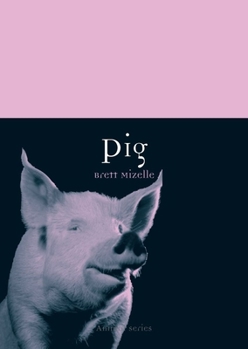Pig
(Part of the Animal Series Series)
Known as much for their pink curly tails and pudgy snouts as their low-brow choice of diet and habitat, pigs are prevalent in popular culture--from the Three Little Pigs to Miss Piggy to Babe. Today there are more than one billion pigs on the planet, and there are countless representations of pigs and piggishness throughout the world's cultures.
In Pig, Brett Mizelle provides a richly illustrated and compelling look at the long, complicated relationship between humans and these highly intelligent, sociable animals. Mizelle traces the natural and cultural history of the pig, focusing on the contradictions between our imaginative representation of pigs and the real-world truth of the ways in which pigs are prized for their meat, used as subjects in medical research, and killed in order to make hundreds of consumer products. Pig begins with the evolution of the suidae, animals that were domesticated in multiple regions 9,000 years ago, and points toward a future where pigs and humans are even more closely intertwined as a result of biomedical breakthroughs. Pig both examines the widespread art, entertainment, and literature that imagines human kinship with pigs and the development of modern industrial pork production.
In charting how humans have shaped the pig and how the pig has shaped us, Mizelle focuses on the unresolved contradictions between the fiction and the reality of our relations with pigs.





